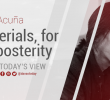True social transformation can only occur in a radical movement for change — an uprooting of the primary causes of the problems that beset society, and a subsequent institution of structural elements in the newly established social order.
By DON J. PAGUSARA
Davao Today
Forty years ago, at the zenith of the youth and student movement popularly called FQS or First Quarter Storm, the inevitability of Change was in the air. It was the clarion call of the hour; it was the urgent order of the day.
In a newsletter editorial of a student-youth aggrupation, I wrote: The winds are blowing Changeward. Let the Filipino youth steer their energies in that direction.
In the hearts and minds of the activists during that excitingly turbulent period, there was no doubt that a new social order was about to be birthed. Though still vague in its specific lineaments, the general outline of the new order was in sight. And it was something definitely different from the old one.
The societal change urgently yearning to take shape was nothing short of a radical change. It was to be a total overhaul of the old social order. It was to be a completely new social architecture — a change both in form and in substance.
So, how would the newborn society look like?
As a new assemblage of the economic, political and cultural components of society, the societal architecture will have the following general features:
The economy would no longer be under the monopoly of the big landlords and big comprador capitalists. A nationalist and democratic economy would prevail, whereby the natural wealth and resources of the country would be harnessed towards the emancipation of the poor majority from their long-standing penury. Agriculture would be developed as the sustainable base for national industrialization purposely designed towards national progress and prosperity.
Foreign intervention in our internal affairs would be firmly opposed and rejected. Our sovereignty and freedom as a nation and people shall be safeguarded always. A coalition government of all classes and sectors who have long been deprived of meaningful participation in governance would be established with the desired ends of instituting effective and efficient democratic processes. Social justice and personal liberties shall be guaranteed at all times.
And in the cultural sphere, a mass and scientific culture would be cultivated within the framework of a nationalist agenda for progress and development. The people shall be liberated from colonial-mindedness, ignorance and obscurantism. The preoccupation of the policy-makers of education and the shapers of artistic expressions shall be directed towards a truly Filipino national identity and cultural integrity.
These general features of the new society wanting to be born were etched in the consciousness of each and every activist of the FQS — a consciousness that served as an inspiring beacon for them to dedicate the totality of their youthful lives for the realization of the radical change so desired.
Waving high in air the banner of militancy, they would chant: So many tasks cry out to be done. Seize the day, seize the hour! And the slogan soon evolved into Serve the people!
Many of these FQS activists went to the mountains at the onset of martial law to serve the revolution (as the movement for change began to be fondly called). Some of them sacrificed their precious lives with the cherished ideals for radical change.
Ang mag-alay ng dugo para sa bayan ay kagitingang hindi malilimutan [To shed blood for the motherland is an act of valor never to be forgotten]is an apt line from a revolutionary song they sang in their march in the city streets as in their treks in the mountains.
We may not remember all their names. But they left behind the vision and ideals they had held aloft and died for so valiantly, so honorably. With the passage of time, the seeds of sacrifices they sowed have consistently grown and spread and have borne fruits in the various forms of people’s struggles and organizations in the urban areas and in the countryside.
But the counterrevolutionary forces spearheaded by their puppets in the helm of state power have been continuously trying to frustrate the fulfillment of the dream for radical change. The ruling elite of landlords, capitalists and bureaucrats do not want radical change. They want to rule forever and continue to subjugate the people in misery. They are the so-called reactionary die-hards.
And in order to put up the guise of “change movers” or “change agents,” these reactionaries would invent all sorts of deceptive devices to mislead the people. They would call these deceptive measures reforms, dangling them with foolhardy boastfulness that these are the appropriate responses to people’s clamors for change.
In truth and in fact, they are all meant to counter the movement for real fundamental change of society. They would stop at nothing, just so they can perpetuate their rule and stagnate social development.
In the aftermath of the Edsa People Power of 1986, the ruling elite launched an orchestrated propaganda campaign to condition the people’s minds into believing that “real change” would happen, that the system which has submerged the people in utter misery would soon be dismantled. The people pinned their hopes on these touted reforms which promised a bright future via a thoroughgoing transformation.
But OMG! The Edsa people power, after all, turned out to be an exceedingly dismaying and frustrating exercise! Because what happened was merely to revert the social dispensation into the pre-martial social arrangement.
Congress was restored. And its halls soon became a “watering hole” where the same representatives of landlord and capitalist classes swagger around to continue the rigmarole of a bogus democracy. As in the good old days!
The Philippine crises of pre-martial law era are back. And now, the ruling elite peddle new magical reform devices. The 4Ps was introduced with a huge outlay of dole-out money. And the experiment failed — miserably failed!
The Oplan Bayanihan cooked up in the counterinsurgency laboratory of the AFP is the Aquino regime’s menu for so-called “peace and development,” served lavishly with “desserts” of sugarcoated bullets. And it is bound to fail.
Now, the latest in the government’s recipe for reforms is a shamefaced display of reactionary politics! The façade of pretense has been unmasked. If previously there used to be a miniature space of representation allowed for the marginalized sectors through the Party-list system, now even that is removed! This is reforms in reverse — a surprisingly unique act of the magistrate of pseudo-democracy!
God knows what other wondrously disgusting acts of State are in store for the Filipino nation within the remaining years of Aquino’s rule!
The fitting task, of course, is to understand “reformism” for what it is.
Reforms are mere palliatives, mere stop-gap measures with no lasting effect. They are props intended to entrench the status quo, especially needed when the bankruptcy of the current system is under siege by popular clamors for change. And so even if a particular reform measure seems to be effective, it will be short-lived and will soon flounder in resounding failure, because it does not get into the root cause of the problem. It does not transform society in its fundamental elements.
True social transformation can only occur in a radical movement for change — an uprooting of the primary causes of the problems that beset society, and a subsequent institution of structural elements in the newly established social order.
So awesome is the fundamental difference between “reformism” and “radicalism.”
Reformism is a deceitful form of appeasement so that the people will exercise forbearance and remain apathetic in the midst of dire poverty and social injustice. It is like a drug that lulls the people to inaction. It abhors assertive people empowerment. In effect reformism tries always to turn the wheels of history to backwardness.
Radicalism, on the other hand, prescribes a revolutionary departure from age-old systems of decadence, corruption and bankruptcy in the status quo. It aims to transform and push society towards a genuine and manifest expression of democratic principles and an honest-to-goodness liberation of our people from misery. Radicalism moves the wheels of history forward.
Don J. Pagusara is a native of Mindanao, a multi-awarded author and a Palanca-awardee.










